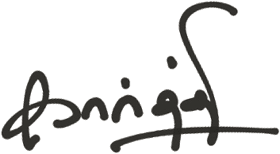To be honest, I used to detest the OKR (Objective and Key Results) system. So much so, that I modified it to OEKR (Objectives, Efforts, and Key Results) for my teams. Let me explain.
OKR operates on the principle: Outcomes >> Activities. I simply incorporated 'efforts' into this equation, creating OEKR.
When teams are young, it's challenging to determine which activities will yield substantial outcomes. Even seasoned teams struggle with prioritizing activities for optimal results. It's natural to follow the path set by the activity, and it's easy to overlook the desired outcome.
While we can control the activities or efforts, we cannot control the outcome. As I gradually assumed leadership roles, I understood the autonomy and empowerment OKRs offered to me and my teams.
It requires a mindset shift to focus on outcomes and adjust activities accordingly. Unfortunately, no one instructs us on how to do this. It's often a matter of trial and error.
Here are a few strategies to master your OKRs:
Don't over-plan. Start with priorities, not plans.
Select your priorities carefully. Once they are clear, you can strategize your activities accordingly. Document your hypotheses and work towards collecting evidence.
Continually measure your progress. Use sprints to check if you're making progress week after week. If something isn't working, quickly adjust your efforts.
Continually measure your progress. Use sprints to check if you're making progress week after week. If something isn't working, quickly adjust your efforts.
Identify a sweet spot that yields excellent outcomes. It usually takes a quarter to reach this point. Spend the next three quarters focusing on improving efficiency and effectiveness.
Strive to exceed the Key Results while maintaining the objective. This framework is beneficial for both new initiatives and product evolution (from acquisition to adoption to revenue). I have used them personally.
What else would you add to this framework?

